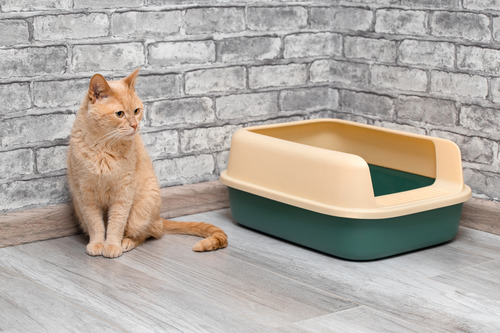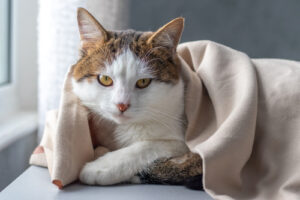When you notice your cat straining to pee, it’s natural to feel concerned. This symptom can be a sign of various health issues that need immediate attention from a veterinary professional. Understanding the possible reasons for this behavior can help you take the right steps to ensure your cat receives the care it needs. This blog explores common causes and signs of urinary troubles in cats, highlighting the importance of prompt veterinary intervention. If you’re worried about your cat’s health, call Berthoud Animal Hospital at (970) 532-2726 or book an appointment online to get expert care.
Common Symptoms of Urinary Distress
It’s important to recognize the signs of urinary distress to ensure your feline receives prompt veterinary care. Cats that are straining to pee often show various sign of discomfort or illness including:
- Visiting the litter box more frequently or avoiding it altogether
- Producing little to no urine
- Expressing vocal pain during urination
- Licking the genital area excessively
These symptoms can indicate a potentially serious condition requiring veterinary attention.
The Urgency of the Situation
Ignoring these signs can lead to more severe health complications for your cat, including blocked urinary tracts or kidney damage. A cat that is straining to pee but unable to pass urine is a medical emergency. This condition can be life-threatening within 24 to 48 hours, making immediate veterinary care critical.
Potential Causes
Urinary Tract Infections (UTIs)
While less common in cats than in dogs, urinary tract infections can cause significant discomfort and lead to straining during urination. Symptoms of a UTI may include bloody urine and a strong odor. UTIs require diagnosis and treatment from a veterinarian to prevent further complications.
Feline Lower Urinary Tract Diseases (FLUTD)
One of the most frequent causes of urinary distress in cats is FLUTD, which encompasses a variety of conditions affecting the bladder and urethra. These can include crystal formation, bladder stones, and inflammation. Each specific condition under the FLUTD umbrella can have different treatments, which is why professional diagnosis is essential.
Urethral Obstruction
This is a critical condition often seen in male cats, where a blockage prevents urine from exiting the bladder. It can cause rapid accumulation of toxins and damage to the kidneys. Symptoms include complete inability to urinate, painful abdomen, and lethargic behavior. Immediate veterinary intervention is required to treat this life-threatening issue.
Diagnosis and Treatment
A thorough examination by a veterinarian is necessary to determine the cause of urinary distress. This may include urine tests, blood tests, ultrasounds, or X-rays to assess the health of your cat’s urinary tract and to rule out other conditions.
Treatment Options
The treatment will depend on the underlying cause. It might involve medication to relieve infection, dissolve stones, or relax the urethra. In some cases, surgical intervention may be needed, especially if there are obstructions that cannot be resolved with medication alone.
When to Contact Your Vet
If you notice any signs of your cat straining to pee, do not wait to see if they will improve on their own. Contact Berthoud Animal Hospital immediately at (970) 532-2726 or book your appointment online to get professional help. Early diagnosis and treatment can save your cat from pain and potentially life-threatening issues.
Monitoring and Follow-up
After treatment, monitoring your cat closely is crucial to ensure they recover without complications. Follow your vet’s instructions on diet, medication, and signs to watch for, and schedule follow-up visits to confirm that your cat is on the road to recovery.
Responding to Your Cat’s Urinary Distress
Observing your cat straining to pee can be alarming, but understanding the possible causes and recognizing the urgency of the situation can guide you to take the necessary steps towards their health and well-being. Always seek the expertise of your veterinarian to provide the right care and treatment. Remember, Berthoud Animal Hospital is here to support you and your cat with professional care. Call us at (970) 532-2726 or book an appointment online for any concerns about your cat’s urinary health.





